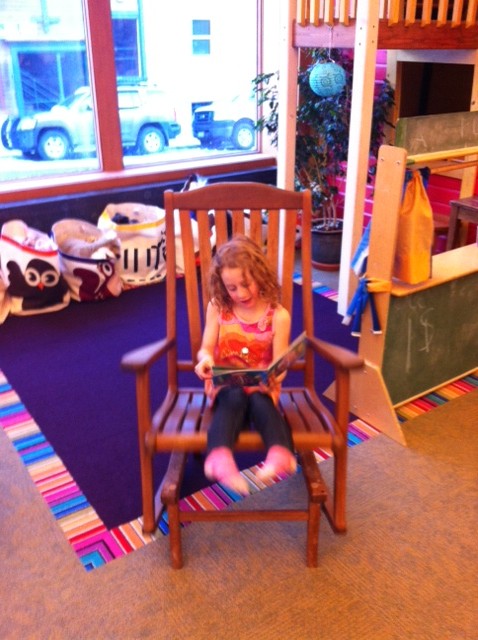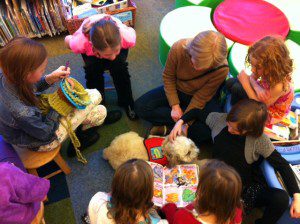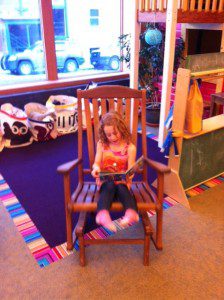
08 Mar FIVE STARS (SPECIAL EDITION): LITERACY & THE FAMILY, 3/12/13
Editor’s note: Year after year, the Library Journal Index of Public Library Services, a public library rating system, has designated Telluride’s Library a five-star institution. And it just earned its fifth star in a row, which puts The Wilkinson Public Library into an elite club of 30 libraries that have seen stars five years in a row and third in the nation among public libraries with annual budgets of $1 – 5 million, hence the name of library director Barb Brattin’s semi-regular column, “Five Stars.” Only this week, Barb opted for a surrogate, Youth Services Program and Outreach Manager Paula Ciberay, to talk about what she knows best, literacy and the family, and an ongoing program in support of both.
 The foundations of literacy begin at birth; some believe even before. Beginning in infancy, a child develops the capacity for language which sets the stage for learning to read and write. The family is a child’s first and most essential resource in providing the needed experiences in which to advance these skills, so it is beneficial for parents and caregivers to understand the six early literacy skills that help a child cultivate those abilities.
The foundations of literacy begin at birth; some believe even before. Beginning in infancy, a child develops the capacity for language which sets the stage for learning to read and write. The family is a child’s first and most essential resource in providing the needed experiences in which to advance these skills, so it is beneficial for parents and caregivers to understand the six early literacy skills that help a child cultivate those abilities.
The first skill is Print Motivation.
Print motivation is all about providing enjoyable experiences around books and reading so that a child internalizes the motivation to do the hard work it takes to learn to read.
The second is Print Awareness.
Print awareness occurs when a child is exposed to the idea that the written word is a symbol for a concept, that the words are placed in a sequence on the page and that there are correct ways to handle and proceed through a book. Noticing environmental print, which is everywhere, also conveys this notion.
The third skill is Letter Knowledge.
Before a child can decipher a word, he needs to know they are made up of letters and that those letters have names and sounds associated with them.
Vocabulary is the fourth skill.
 Reading becomes meaningful when a child understands what a word represents. The larger a child’s vocabulary, the easier it will be for him or her to learn to read.
Reading becomes meaningful when a child understands what a word represents. The larger a child’s vocabulary, the easier it will be for him or her to learn to read.
Phonological Awareness fosters a child’s recognition that words are made up of a series of smaller sounds. That insight helps a child being able to sound out words in the future. Singing, reciting rhythms, noticing the sounds of at the beginning and ends of words, and playing with all sorts of sounds, prepare a child to read.
Narrative Skills include the ability to describe events and things, tell a story, understand sequencing, and predict what will happen next.
As a child begins to read and write, the family and caregivers continue to play an essential role in providing experiences that foster growth through maturity Our library is here to help, not only through material resources, but also through our many different programs.
Every second Tuesday of the month beginning at 5:30 p.m., the library provides a program we call “LAF,” or Literacy and Family night. The gathering is an opportunity for the community to learn more and participate in literacy activities as a family. Please join us Tuesday, March 12. at 5:30 p.m. for a celebration of Dr. Seuss!
On March 27. we encourage you to please register your 8-12 year old child for “Poetry Uprising” with Rosemerry Wahtola Trommer. In Rosemerry’s own words,
“Too much fun to be a workshop, this playshop for kids uses poetry as a way to have fun with words, create rhythms, and say all the things kids want to say,” our Word Woman explained.
In addition to writing together, Rosemerry will also offer the kids prompts so they can continue to write for the whole month of April and until they meet again on May 2 to share what they’ve written.
For more information, call me, Paula Ciberay, 970-728-4519.


Sorry, the comment form is closed at this time.